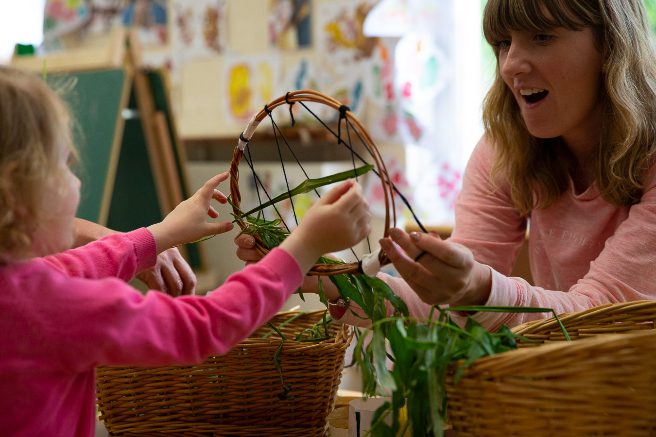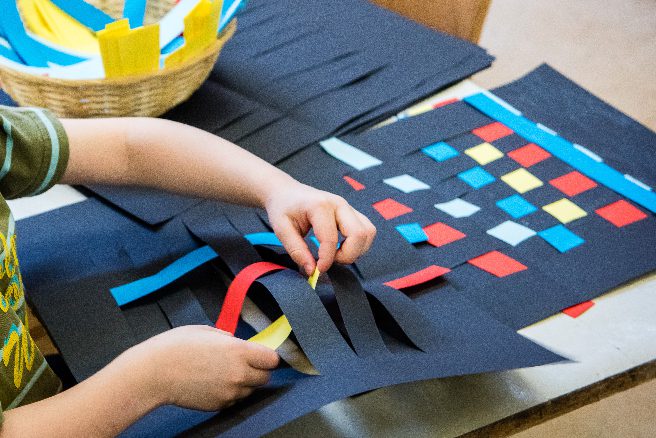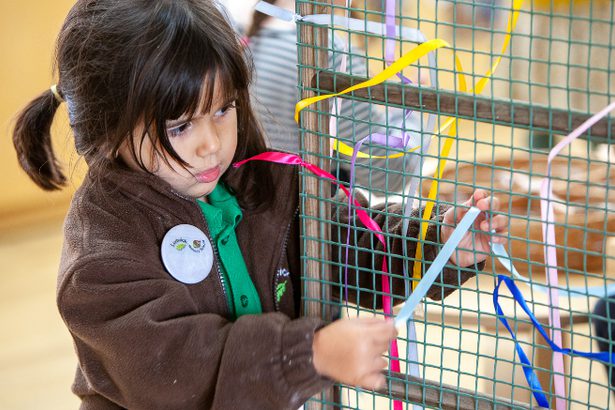Sewing, threading and weaving are 'slow' Occupations offering time and focus. They support children to make choices, plan and develop fine motor movements.
Sewing and weaving are part of a Froebel's Occupations - creative activities and experiences for young children.
"Through the Occupations, children can:
- represent, be inventive and engage creatively and imaginatively
- build their physical competencies
- make links to everyday life, nature, knowledge and understanding
- be empowered to move from the here and now to the abstract (so laying the foundations of literacy and mathematical understanding)
- develop dispositions and attitudes that will benefit them in the adult world of work."
Prof. Tina Bruce and Jane Dyke, Learning from Froebel (2017)
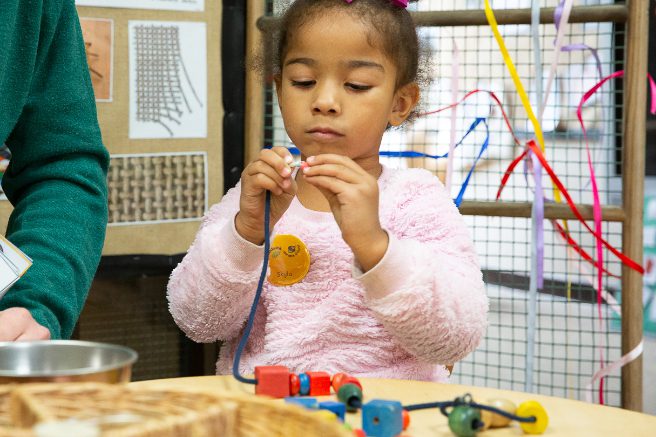
"The opportunity to use a needle to sew may be one of the unfamiliar experiences that coming to early years settings offers. Some children may not have seen someone sewing before. Threading beads and using open weave material is a good place to start."
Sharon Imray, Tracy Thomson and Jane Whinnett, Sewing with young children (2023)
A collection of sewing related resources and guides for educators:
Creativity in early education
Creativity is about children representing their own ideas in their own way, supported by a nurturing environment and people.
Find out more about Froebelian principles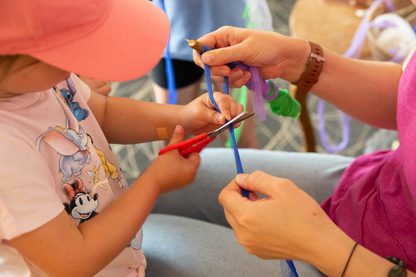
Sewing workshop for educators
Presented & recorded by Froebel trained educators at Guildford Nursery School & Family Centre. Packed with practical advice for educators in early years settings. April 2024
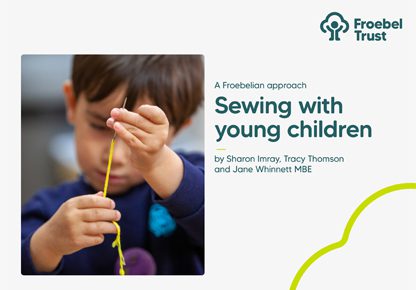
Download a free pamphlet
This concise guide (interactive PDF) introduces the Froebelian occupation of sewing and suggests ways it can be introduced in schools and early years settings today. Jan 2023
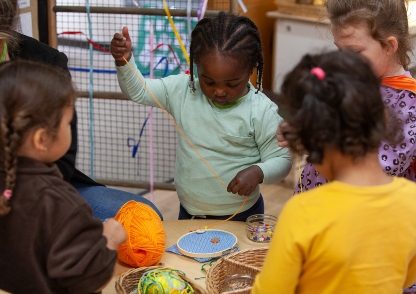
Watch a recorded webinar
This Froebel Trust webinar, 'Sewing with young children', features Esme Young (from BBC's 'The Great British Sewing Bee') and three nursery school headteachers. Jan 2023
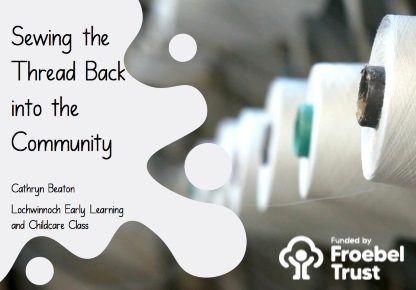
Putting sewing into action in a nursery school
A Scottish nursery school received a Froebel Trust grant to run a series of community workshops and develop the Froebelian Occupation of sewing. Report produced in May 2023
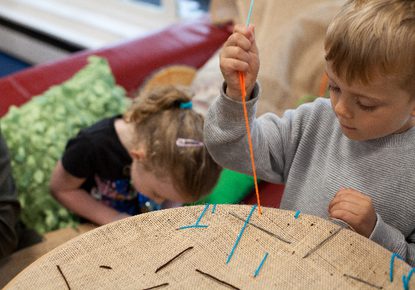
The Occupations in an early years setting
An article observing how Froebel's Occupations (incl. sewing) can support every child's learning. A case study from Guildford Nursery School & Family Centre. April 2024
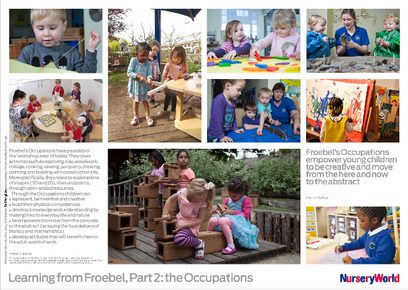
Download a free Occupations poster
First produced by Nursery World magazine, in association with Community Playthings, in 2017. This poster introduces the Froebelian Occupations. Free to download and display.
Weaving is a Froebelian Occupation which uses some of the same skills as sewing. It fosters hand-eye co-ordination and fine motor skills. Children can use paper, wool and ribbons and small hand-held cardboard or free-standing looms. Weaving can also be taken outside, using fences or branches as the 'loom' and other natural materials as the 'threads'.
